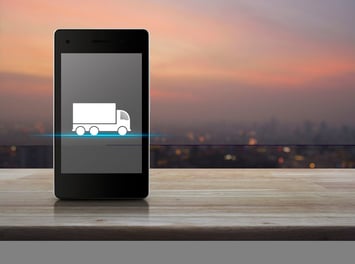What is blockchain?
Blockchain technology is a computer-based open-source system for undertaking and tracking transactions. With an agreed-to network of interconnected participants, a blockchain eliminates the need for third party oversight traditionally provided by a bank or online tracking portal.
The concept was conceived of to support the international online currency, bitcoin. In blockchain, the management of all transactions – most often financial or logistical – takes place collectively by the network of participants in a peer-to-peer environment.
Because all participants can see – and need to agree – before a transaction can be confirmed or modified, transparency is increased, which helps to:
- reduce fraud and errors
- reduce the time that goods spend in the transit and shipping process
- improve inventory management and, ultimately
- reduce waste and cost.
 Is it more secure?
Is it more secure?
There are varying opinions, but most say yes. By storing data across the network and employing digital encryption, it is generally believed that the security risks associated with traditional centralized storage systems are reduced.
Blockchain & Shipping
Blockchain technology could be the next big thing to happen in the shipping industry. It provides an exciting opportunity to go paperless while allowing all parties (seller/buyer of cargo, ship owner, charterer, bank, agent, customs officials, port authority, etc.) to benefit from a transparent and secure online environment throughout the supply chain.
Blockchain can allow all stakeholders to:
- schedule and track physical transactions
- exchange and store information
- meet their contractual obligations
- give and accept instructions and
- securely exchange payments.
Calculations, approvals and other transacting activities could eventually become automated and paperless, too.
It’s already happening
Earlier this year, shipping giant Maersk and software company IBM teamed up to conduct an end-to-end digitized supply chain pilot using blockchain technology. By all accounts, it was a success and both companies are optimistic about this system increasing efficiency and cutting costs of shipping. Maersk has already committed to moving and tracking 10 million of its 70 million container shipments by the end of 2017 using blockchain.
Got questions?
This is new. We’re learning, too.
Email us today to learn more about blockchain and the role it can play in modernizing your shipping business.
Information provided by: Canadian Customs Consulting Dept. - Cole International
 Is it more secure?
Is it more secure?